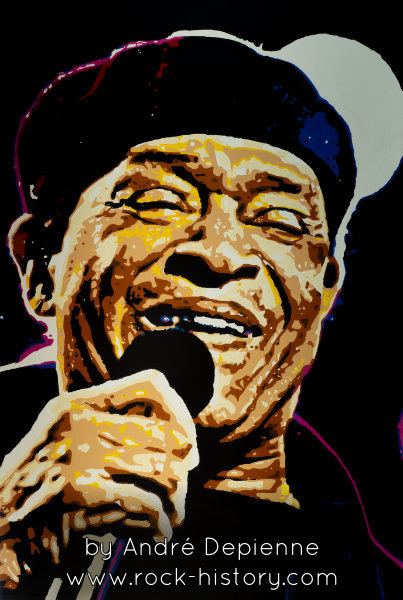Click on a picture to see more details.
Al Jarreau
Al Jarrerau was born the 5th of 6 children in 1940 and grew up in poor conditions. From a young age, music played an important role in his life as he listened to jazz greats like Nat King Cole, Dizzy Gillespie, Ella Fitzgerald and Jon Hedricks on the radio. His father was the preacher, his mother the organ-player in the church, where Al had his first performances as a solo singer at the age of 4.
At home, Al and his brothers would improvise songs, which later showed a big impact on his musical style.
In his adolescence he started performing in local bars, where he got to know the Hungarian jazz-piano player, Laszlo Les Czimber aka Tarzan, who showed him how to elaborate songs.
Al started studying psychology at Rippon College, Wisconsin, where at the weekends he performed with the quartet The Indigos at local bars. He graduated with a Bachelor of Science and continued his studies to get achieve a Master’s Degree in Vocational Rehabilitation at the University of Iowa.
In 1964, while enlisted for his military service in San Francisco, Al performed with a trio led by then unknown, George Duke. During that time he met several musicians that would have an influence on him. Saxophone player J.R. Monterose taught him how to sing saxophone lines and how to scat and, through Brazilian guitarist Julio Martinez, he discovered his love for Bossa Nova.
In the course of his career, Al Jarreau tried different music genres from Jazz, Pop and R&B to Bossa Nova. In a 1984 interview with Jazz Forum magazine he said: “So I’m really a product of a lot of different music. The whole American scene was an influence as a part of my past, but probably the jazz stuff was the most important.“
In 1975, a talent scout from the Warner Music Group discovered Jarreau whilst he was playing at the legendary Troubadour Club in Hollywood. Shortly after he released his debut album ‘We Got By’. He’d then take the opportunity to spend 6 months performing at various clubs in Hamburg.
The big breakthrough for vocal acrobat Al Jarreau would happen with the release of his third album ‘Look To The Rainbow’ in 1977, with live recordings from his time in Europe. It featured his excellent interpretation of Dave Brubeck's hit Take Five, which made Jarreau an overnight success. The same year he was awarded his first of seven Grammys for Best Jazz Vocal.
Toward the end of January 2017 Jarreau was suffering from health problems and canceled his upcoming live performances, declaring only a month later that he would have to retreat from stage. 4 days later, he died at Los Angeles hospital, surrounded by his family.
With his death, Jazz lost one of its most gifted singers. He was an instrumentalist of the voice, his throat was able to create a whole orchestra reaching from lowest bass to highest flageolet.



